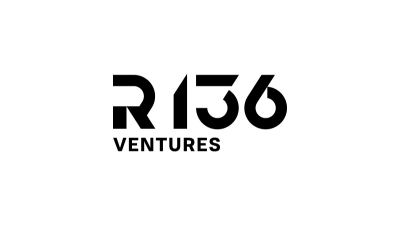Venture Capital Q&A: Victor Orlovski, R136 Ventures
A significant amount of the venture capital market focuses on the early rounds of the next great idea’s journey, but increasingly, VC’s need to get their hands dirty in order to help their portfolio companies move through the funding stages towards a potential exit. Greg Winterton spoke to Victor Orlovski, Managing Partner at R136 Ventures, to get his thoughts on the current state of the mid-later stage venture market.
GW: Victor, for those who might not be familiar with R136 Ventures, tell us a little about the firm.
VO: R136 Ventures is based in Silicon Valley and manages three venture capital funds of various stages. We primarily focus on sectors such as fintech, tools for artificial intelligence and applications based on AI, B2B marketplaces, cloud, data management & analytics, and workflow automation for enterprises in the United States and Israel.
GW: What are some of the challenges currently facing mid-late-stage start-ups? Are these temporary or permanent, and why?
VO: Mid- to late-stage startups face a range of challenges, influenced by both temporary and enduring factors. A primary hurdle is securing funding amid economic uncertainties and tighter venture capital markets. This challenge, although likely influenced by current economic cycles, requires startups to engage in strategic financial planning to navigate successfully.
As these companies grow, they also encounter the ongoing challenge of scaling operations efficiently while maintaining quality. This permanent aspect of business growth demands robust strategies and experienced leadership to ensure a strong foundation and clear scaling processes are in place.
The cash crisis hit unexpectedly and with significant force in the summer of 2022, impacting mid- to late-stage companies the most. These companies had been enjoying high valuations, often prioritizing growth over healthy unit economics. From 2020 to 2022, many startups were raising funds 4-6 times a year, with some seeing their valuations multiply tenfold over several rounds. It was a period of easy access to capital, where any startup showing business growth could raise money at hyper-inflated valuations. Debt, including convertible and venture debt, was also readily available, cheap, and easily restructured. However, this approach ended poorly for these startups. They were using debt to scale unprofitable growth and relied on new funding rounds to reach the next stage, ultimately leading to their downfall.
Compounding these challenges is the fierce competition for top talent, driven by the high demand for expertise in the continually evolving tech industry. Additionally, startups must navigate relentless competition from both established companies and other emerging firms. This competition, a permanent fixture in the business landscape, requires them to remain adaptable and innovative to maintain a competitive edge.
Valuations have shrunk and have not recovered. Creditors, especially after the collapse of SVB, have become very aggressive and are unwilling to restructure debt. Term sheets have become rare. Other investors - hedge funds, family offices, crossover funds, and SPACs - have withdrawn from the market, leading to a significant shortage of available capital. For many startups, shifting from burning cash for growth to building profitable businesses has been extremely challenging. M&A activities and IPO opportunities have been drastically reduced, making exits nearly impossible.
GW: There is an increasing trend in the VC world that they are getting more involved in the day to day of their portcos to better support their growth journey. What differentiates a good VC from a not-so-good one in this area?
VO: Good VCs support companies in their growth by providing expertise in scaling businesses, marketing, and building sales teams. Our focus is on helping founders overcome operational challenges and build tech teams; scaling a tech team from tens to hundreds of engineers is a significant challenge for any founder.
Other areas where VCs can add value is in talent acquisition and navigating complex B2B deals; having experience as B2B buyers is a significant benefit in today’s market. Also, understanding how corporations buy technology is key in 2024.
GW: How has R136 Ventures changed its approach to due diligence on potential portfolio companies in the past 18 months or so at all?
VO: We conduct very comprehensive due diligence, assessing over 250 data points. As our investments focus on mid- and growth-stage companies, we evaluate extensive historical data. Before delving into a company's specifics, we thoroughly research market trends, tech trends, and the competitive landscape.
Today, we utilize a variety of AI tools to assess startup data, conducting deep tech due diligence, which is rare in the VC world. Recently, we have started evaluating how startups are engaging with generative AI technologies and their potential to innovate and adapt to the evolving AI-driven economy and business operations. Despite the emphasis on data and technology, we believe that people are the core of any startup. Therefore, engaging with current and former employees is a crucial part of our due diligence process. We also place significant importance on the composition and effectiveness of the board, recognizing that ultimately, a startup is managed by people.
GW: Lastly, Victor, it’s well documented that there was a pullback in VC fundraising last year, which has also continued into the first half of 2024. What is your message to LPs about the benefits of mid-late-stage investing when compared to the very early stages?
VO: In light of the recent pullback in VC fundraising, it’s crucial for limited partners (LPs) to consider the strategic benefits of mid- to late-stage investing. These companies, having surpassed early growth hurdles, offer greater stability and predictability in their financials and business models. This stability translates into more reliable investment outcomes, especially during periods of market volatility, as these firms have already demonstrated market fit and established clearer paths to scaling and profitability.
Moreover, mid- to late-stage companies are often on the brink of significant liquidity events such as IPOs or acquisitions, which can lead to quicker and more substantial returns. This stage of investment allows LPs to capitalize on the groundwork laid during a company’s early stages while taking advantage of accelerated growth and potential exit opportunities.
Overall, investing in mid- to late- stage companies provides a compelling blend of reduced risk and strong return potential, making it an attractive option for LPs looking to optimize their investment portfolios during uncertain times.
We believe that investing in mid- and late-stage tech companies now could create one of the best vintages in VC for the 21st century. Beyond foundational AI startups, valuations are currently very low, presenting excellent opportunities in the market. Many high-quality companies are available and are expected to start raising rounds in anticipation of economic growth following upcoming base rate cuts. Private company multiples are lower than their public market counterparts. We anticipate that the IPO and M&A windows will reopen between 2026 and 2028, promising substantial returns for VCs.
Victor Orlovski is Managing Partner at R136 Ventures
© The Sortino Group Ltd
All Rights Reserved. No part of this publication may be reproduced, stored in a retrieval system or transmitted in any form or by any means, electronic, mechanical, photocopying, recording or scanning or otherwise, except under the terms of the Copyright, Designs and Patents Act 1988 or under the terms of a licence issued by the Copyright Licensing Agency or other Reprographic Rights Organisation, without the written permission of the publisher. For more information about reprints from AlphaWeek, click here.








